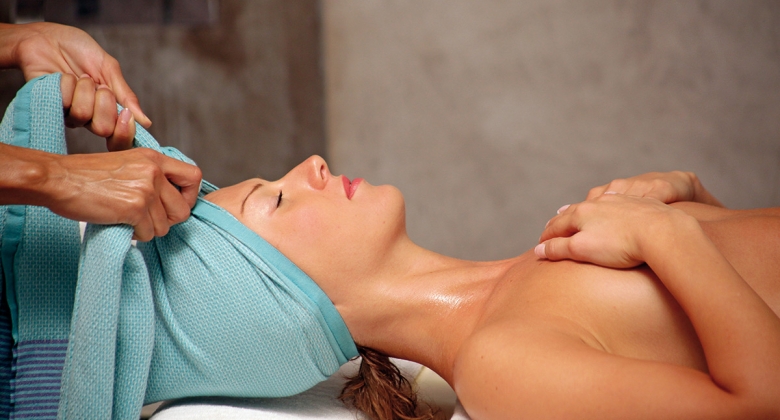

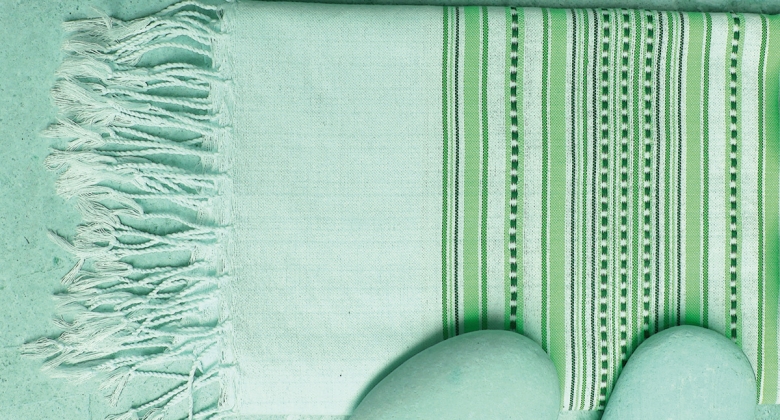
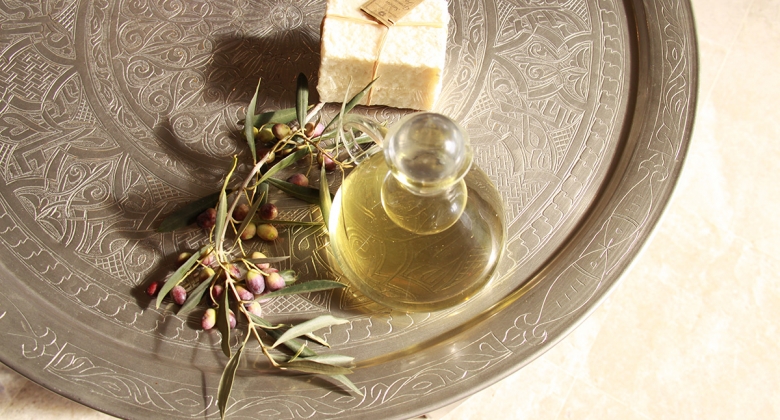
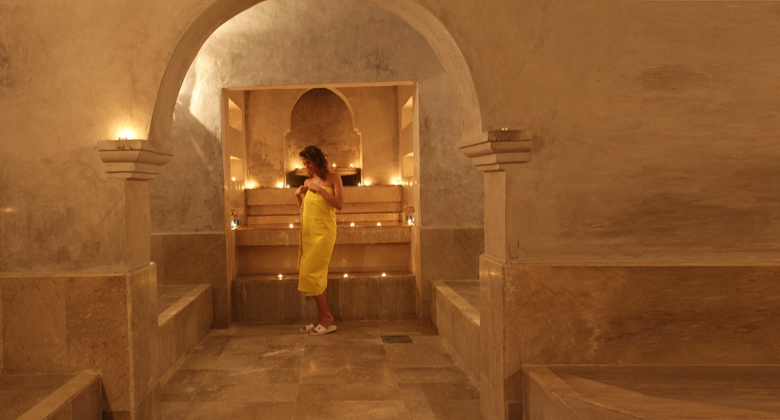
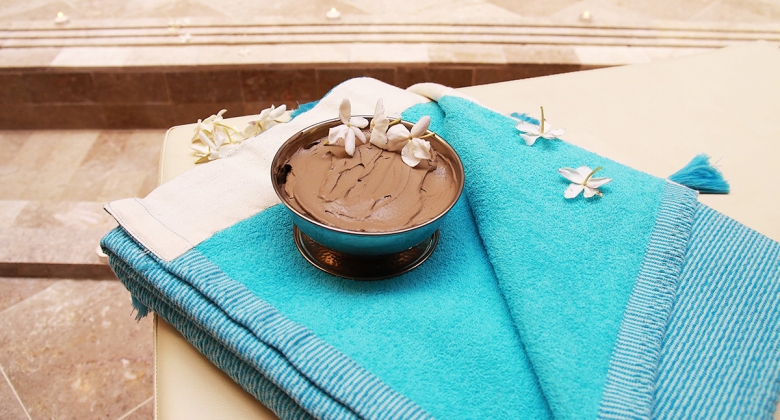
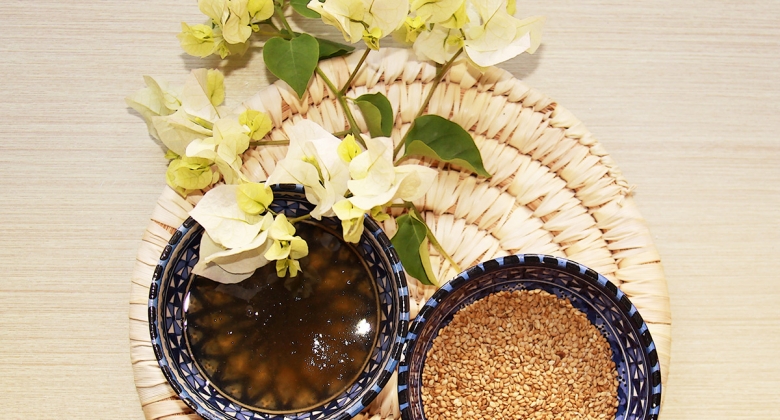
The spas and thalasso centres of Tunisia have inherited from this tradition. Discover these little extras that make all the difference.
In the Tunisian spas and thalassotherapy centres, the hammams are fascinating spots where the murmur of the fountains echoes under steam-filled vaulted. The steam bath promotes relaxation and toxin elimination. But the full ritual is a must. The steam bath is accompanied by a natural scrub using a rough glove, then a wrap of perfumed clay. A light massage with rose or jasmine oil, a traditional sugar wax often finish off the ritual, capped off with the ceremonial mint tea served with fruits and sweets .
In Tunisia, many generations have practiced stretching in the Hammam, either using both hands, or with the help of the foutas, the large striped towels worn as a sarong when leaving the Hammam.
A large cotton scarf, passed under the torso, lifts you gently, rocks you, stretches you forwards, backwards, sidewards… Other scarves come to wrap around your shoulders, your wrists, your ankles, your head… to liberate your joints and very gradually stretch the whole body. A treatment which melts away muscular tension and improves blood circulation, especially appreciated by athletes.
Tunisia is rich in medicinal and aromatic plants: thyme, henna, rosemary, fennel seeds, eucalyptus… The traditional floral waters are rich in essential oils: water of orange flower, rose, rose geranium. Ancestral recipes know how to harness the potential of the hidden virtues of the earth’s plants and products.
• Olive oil: As a massage oil, it is very hydrating, nourishes and softens the skin; orange flower water can be added.
• Barbary fig oil: extracted from the seeds of cactus-fruit, it has extraordinary hydrating, firming and anti-aging properties.
• Green clay, known as Tfal, is healing, antiseptic and analgesic. Brown clay, or Ghassoul, is cleansing and purifying. White clay, or Barrouk, is finer and is used for the face.
• Tea has remarkable antioxidant properties, and thus contributes to slowing down the signs of aging. It is used in many ways – baths, massage balms, wraps...
• Henna: this powder of dried leaves, from a shrub cultivated in the oasis of Gabes, is an extremely ancient cosmetic product. It is good for nourishing the hair, and erasing impurities and healing small irritations of the skin.
•.Pomegranate: this fruit typical of Tunisian orchards and the southern oases is an excellent anti-aging asset. Three times richer in antioxidants than green tea, it hydrates, softens and firms the skin.
• Date: the emblematic fruit of Tunisia’s southern oases, is regenerative and nourishing. It is used to make facemasks.